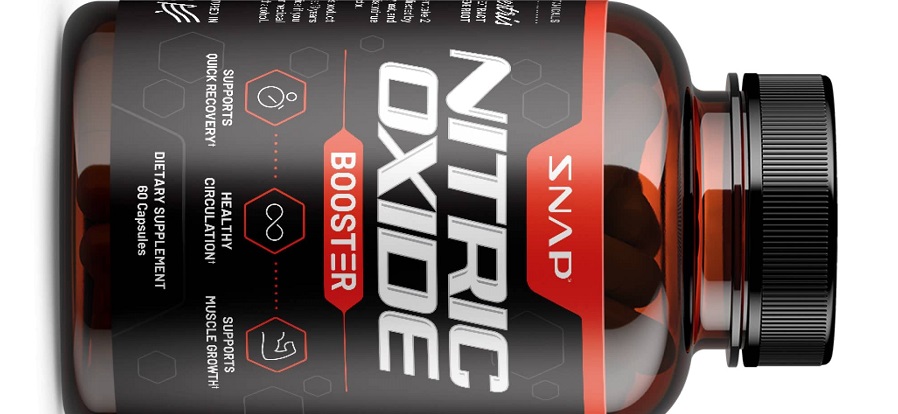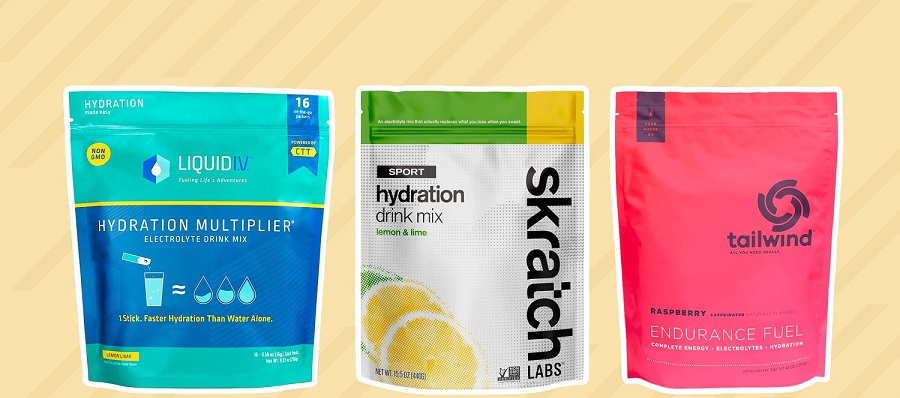Nitric oxide boosters are supplements that are designed to increase the levels of nitric oxide in the body. Nitric oxide is a molecule that is produced naturally in the body and is involved in a number of important physiological processes, including blood flow, blood pressure regulation, and muscle function.
Some of the most common ingredients found in nitric oxide boosters include arginine, citrulline, and beetroot extract. These ingredients are thought to help increase the production of nitric oxide in the body, which can lead to improved blood flow and increased muscle pumps during exercise.
In addition to their potential performance-enhancing effects, nitric oxide boosters may also have potential health benefits. Some research suggests that increasing nitric oxide levels in the body may help to lower blood pressure and improve cardiovascular health.
It's important to note that these supplements are not regulated by the FDA, there is no guarantee that the product contains the ingredient it claims and in the amount it claims, and there is a lack of scientific evidence to support many of the claims made by manufacturers. It's also important to speak with a healthcare professional before starting to take any supplement, especially if you have any pre-existing medical conditions or are taking any medications.
What are some common ingredients found in nitric oxide boosters?
Some common ingredients found in nitric oxide boosters include:
- Arginine: An amino acid that is a precursor to nitric oxide production in the body.
- Citrulline: An amino acid that is converted to arginine in the body, which can then be used to produce nitric oxide.
- Beetroot extract: Contains high levels of nitrates, which can be converted to nitric oxide in the body.
- Pine bark extract: Contains antioxidants and proanthocyanidins that may help to improve blood flow and increase nitric oxide production.
- L-Norvaline: An amino acid that can help to increase the effectiveness of arginine in boosting nitric oxide levels.
- Nitrates (found in food sources like spinach, arugula, and beet greens) : as they are converted to Nitric oxide in the body
- Vitamin C : it's an important cofactor for the enzyme that produces Nitric oxide.
It's important to note that not all nitric oxide boosters will contain the same ingredients, and some products may contain additional ingredients that are not listed here. Additionally, some products may not contain the ingredients in the amount that is claimed on the label, which can affect the effectiveness of the supplement.
How do nitric oxide boosters increase blood flow and muscle pumps?
Nitric oxide is a vasodilator, meaning it relaxes and widens blood vessels, this allows blood to flow more easily and with greater pressure. This increased blood flow can lead to improved nutrient delivery to the muscles and faster removal of waste products, which can lead to improved muscle pumps during exercise.
When nitric oxide is produced in the body, it causes the smooth muscle in the walls of blood vessels to relax, which allows the vessels to widen. This process, known as vasodilation, increases blood flow and reduces resistance in the blood vessels. As a result, the heart doesn't have to work as hard to pump blood and blood pressure can decrease.
When it comes to muscle pumps, the increased blood flow can also bring more oxygen and nutrients to the muscles, which can help to improve muscle function and endurance. Additionally, the improved blood flow can help to remove waste products such as lactic acid, which can lead to less muscle fatigue and soreness.
It's important to note that the effects of nitric oxide boosters on blood flow and muscle pumps may vary depending on the individual and the specific product being used. Additionally, while some studies have suggested that nitric oxide boosters can improve blood flow and muscle pumps, more research is needed to confirm these findings.
What are the potential performance-enhancing effects of nitric oxide boosters?
The potential performance-enhancing effects of nitric oxide boosters may include:
-
Increased blood flow: As Nitric oxide is a vasodilator, the increased blood flow can bring more oxygen and nutrients to the muscles, which can help to improve muscle function and endurance.
-
Improved muscle pumps: The increased blood flow can help to remove waste products such as lactic acid, which can lead to less muscle fatigue and soreness, and may also lead to an increase in muscle size.
-
Increased strength and power: Nitric oxide boosters may help to improve muscle function, which can lead to increased strength and power during exercise.
-
Enhanced endurance: The increased blood flow can bring more oxygen to the muscles, which can help to improve endurance during exercise.
-
Faster recovery: The improved blood flow can help to remove waste products from the muscles, which can lead to faster recovery after exercise.
It's important to note that the performance-enhancing effects of nitric oxide boosters may vary depending on the individual and the specific product being used. Additionally, while some studies have suggested that nitric oxide boosters can improve performance, more research is needed to confirm these findings and understand the exact mechanisms by which they work. Additionally, these supplements are not regulated by the FDA and there is a lack of scientific evidence to support many of the claims made by manufacturers.
Can nitric oxide boosters lower blood pressure and improve cardiovascular health?
Some research suggests that increasing nitric oxide levels in the body may help to lower blood pressure and improve cardiovascular health. Nitric oxide is a vasodilator, meaning it relaxes and widens blood vessels, this allows blood to flow more easily and with greater pressure. This increased blood flow can lead to improved nutrient delivery to the muscles and faster removal of waste products, which can lead to improved muscle pumps during exercise. As a result, the heart doesn't have to work as hard to pump blood and blood pressure can decrease.
Additionally, Nitric oxide has antioxidant properties, which can help to protect the blood vessels from damage and inflammation. By reducing inflammation and oxidative stress, nitric oxide may help to improve cardiovascular health and reduce the risk of heart disease.
However, it's important to note that more research is needed to confirm the link between nitric oxide boosters and blood pressure and cardiovascular health. Additionally, these supplements are not regulated by the FDA, there is no guarantee that the product contains the ingredient it claims and in the amount it claims, and there is a lack of scientific evidence to support many of the claims made by manufacturers. It's also important to speak with a healthcare professional before starting to take any supplement, especially if you have any pre-existing medical conditions or are taking any medications.
Are nitric oxide boosters safe to take?
Nitric oxide boosters are generally considered to be safe when taken as directed. However, as these supplements are not regulated by the FDA, there is no guarantee that the product contains the ingredient it claims and in the amount it claims, and there is a lack of scientific evidence to support many of the claims made by manufacturers.
It's important to speak with a healthcare professional before starting to take any supplement, especially if you have any pre-existing medical conditions or are taking any medications. Some people may have an allergic reaction to certain ingredients found in nitric oxide boosters, such as arginine. Additionally, some people may experience side effects such as stomach upset, diarrhea, or headaches when taking nitric oxide boosters.
Additionally, people with pre-existing medical conditions such as high blood pressure, kidney or liver diseases, or diabetes should be particularly careful when taking these supplements, as they could interact with the medications they are taking and make the condition worse.
It's also worth noting that some studies have reported negative effects on cardiovascular health when taking high doses of L-arginine, one of the ingredients found in Nitric oxide boosters. It's essential to stick to the recommended dosage and not exceed it.
In summary, Nitric oxide boosters can be considered safe when taken as directed, but it's important to consult a healthcare professional before starting to take any supplement and be aware of the potential side effects and possible interactions with other medications.
What are the possible side effects of taking nitric oxide boosters?
The possible side effects of taking nitric oxide boosters may include:
-
Stomach upset: Some people may experience stomach discomfort, such as nausea, diarrhea, or cramping, when taking nitric oxide boosters.
-
Headaches: Some people may experience headaches when taking nitric oxide boosters, this might be due to the vasodilation effect of nitric oxide.
-
Allergic reactions: Some people may have an allergic reaction to certain ingredients found in nitric oxide boosters, such as arginine.
-
Low blood pressure: Nitric oxide is a vasodilator, which means it causes the blood vessels to widen and can lead to a decrease in blood pressure, this might be a problem if you are taking blood pressure medications or if you have low blood pressure.
-
Interactions with medications: Nitric oxide boosters may interact with certain medications, such as blood pressure medications, blood thinners, and antidepressants, so it's important to speak with a healthcare professional before taking them.
-
Worsening of pre-existing medical conditions: Nitric oxide boosters may worsen certain medical conditions such as high blood pressure, kidney or liver diseases, or diabetes, so it's important to speak with a healthcare professional before taking them.
It's important to note that these side effects are not common and most people can take nitric oxide boosters without experiencing any problems. However, if you experience any side effects or have any concerns, it's important to speak with a healthcare professional.


